Since coming to OU, I have been so honored to partner with state agencies to help them meet their evaluation needs. The need is great and our research skills and perspectives are in high demand. Making those connections and sustaining them is mutually beneficial. These partnerships are the most rewarding part of my work - knowing that research can have direct implications for policy and practice. And, Oklahoma has some talented and smart leadership doing their best to improve the well-being of children and families in our state. I’m honored to work with them.

OU Sociology in Oklahoma
OU Sociology is dedicated to understanding the social world both globally and locally. Several of our faculty work on a variety of projects exploring social process in and around Oklahoma. This is part of our ongoing mission to understand the State of Social Life in Oklahoma. Through community outreach and the development of strategic partnerships, we seek to collect, analyze, and disseminate sociological data and findings from urban and rural Oklahoma.

Faculty Researching Oklahoma
Several of our faculty are pursuing or have published projects about social life in Oklahoma.
- Loretta Bass
- Constance Chapple
- Trina Hope
- Erin Maher
- B. Mitchell Peck
- Meredith Worthen
We have partnered with several state offices and community partners including (but not limited to):
- U.S. Office of Juvenile Justice
- Oklahoma Department of Human Services
- Oklahoma Office of Juvenile Affairs
- Oklahoma Partnership for School Readiness
- Mabel Basset Correctional Facilty
- Cheyenne and Arapaho Tribes of Oklahoma
- Cleveland County Health Department
- Norman Public Schools
Faculty Testimonial
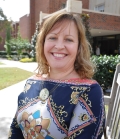


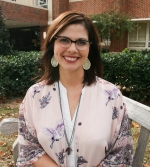
In January, 2020, Dr. Trina Hope and Dr. Connie Chapple (pictured) launched an innovative, ethnographic study of high-impact learning experiences inside an Oklahoma prison. We partnered with Dr. John Carl and his Inside/Out course at OU which is designed to connect incarcerated and traditional students inside a correctional facility (read more here). We traveled weekly to collect data at Mabel Bassett Correctional Center in McLeod, Oklahoma, which is the largest women’s prison in the state of Oklahoma. We observed class interactions and focused on how the process of transformational learning occurs within a correctional environment. We found that the prison environment presents challenges to high-impact learning but that the overall, positive experiences outweigh the challenges faced. Our work is ongoing and will inform academic research and local educational practices.
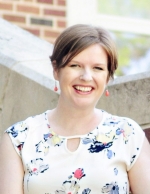
Dr. Meredith G. F. Worthen has conducted extensive research in the state of Oklahoma clustering around the areas of LGBTQ studies and gender and crime. Through her survey research focused on college students' LGBT attitudes in the state of Oklahoma, she has demonstrated the importance of understanding variations in LGBT stigma as well as the particular complexities that come about in Bible Belt and Southern U.S. regions that relate to LGBT attitudes. In addition, Worthen collected data about sexual assault education in the state of Oklahoma and found that intersectionality (especially gender, sexuality, and race/ethnicity) is integral to continued conversation about campus sexual assault. In an ongoing series of co-authored projects with Emeritus Faculty Member, Susan Sharp, and OU Sociology PhD graduate Melissa Jones, Worthen has focused on Oklahoma women prisoners and their adverse childhood experiences. Together, this body of research works toward uncovering the significance of multiple dynamics in the social life in the state of Oklahoma.
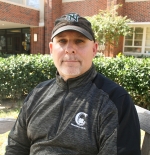
Dr. Mitchell Peck (pictured) has conducted several research projects with a specific focus on the state of Oklahoma. Partnering with Dr. Paul Ketchum (University of Oklahoma, College of Professional and Continuing Studies), he has examined various components of the juvenile justice system in Oklahoma. One study focused on the effectiveness of the two largest juvenile treatment strategies (group home and early intervention programs) aimed at reducing recidivism of juvenile offenders. The study results helped officials at the Oklahoma Office of Juvenile Affairs better target juvenile offenders to reduce recidivism rates. Another study examined the extent of disproportionate minority contact in the juvenile justice system in Oklahoma. The results from the study helped juvenile justice officials develop strategies for the reduction of disproportionate minority contact that are both feasible and cost effective.
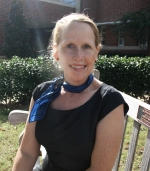
Dr. Loretta Bass is a social demographer investigating inequality that affects children and youth as part of her Oklahoma research agenda. She worked with the Cleveland County Health Department and Norman Public Schools to examine what household and neighborhood factors are related to child well-being indicators, such as obesity and being on-track academically, and she found the highest obesity rates for 5th graders who lived in neighborhoods without full-service grocery stores and coming from families where parents were not active in physical activities with their children. Also, Dr. Bass directed a survey in partnership with the tribal government and OU Poll to assess the health and community needs of the Cheyenne and Arapaho Tribes population in nine Oklahoma counties in and outside tribal service areas.

Want to Partner with OU Sociology?
The faculty in our department are regularly seeking to develop strategic partnership to understand social life in Oklahoma. If you are interested in developing such a partnership, please reach out to our faculty directly. For a list and contact information for our faculty, see:
Faculty Page
For an overview of our faculty's research interests, see:
Research Areas


